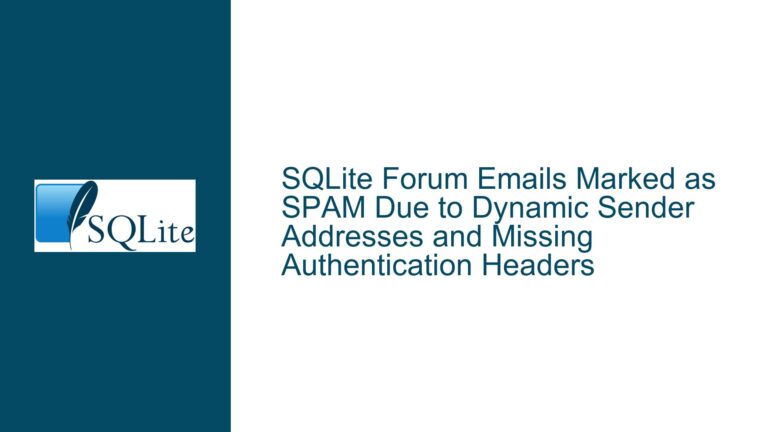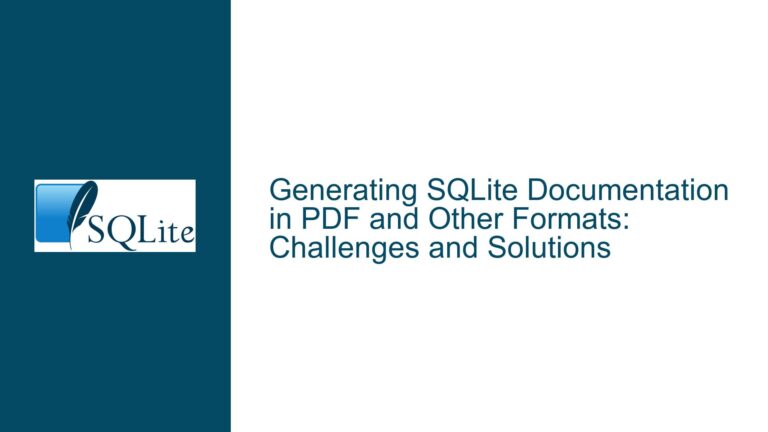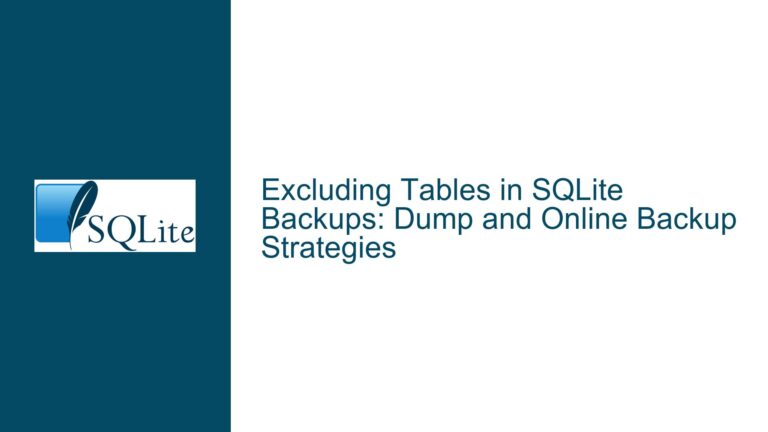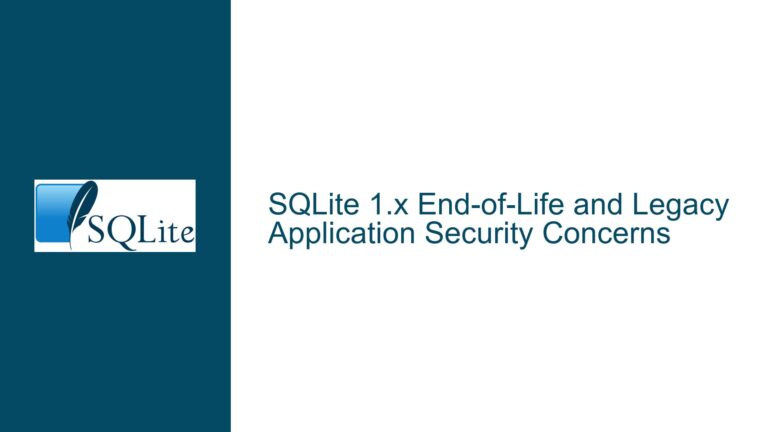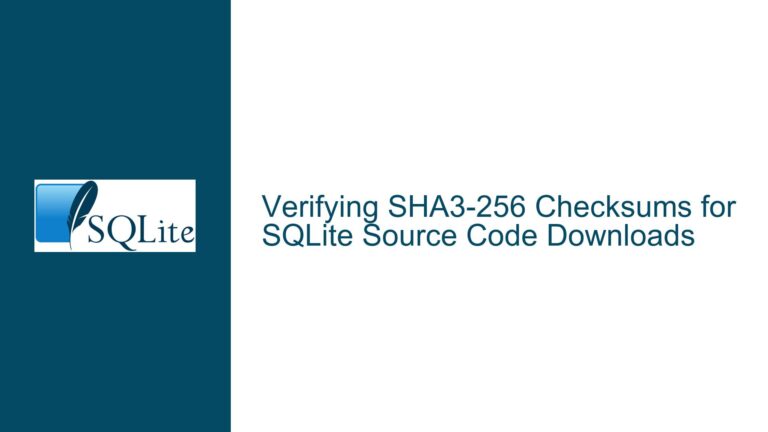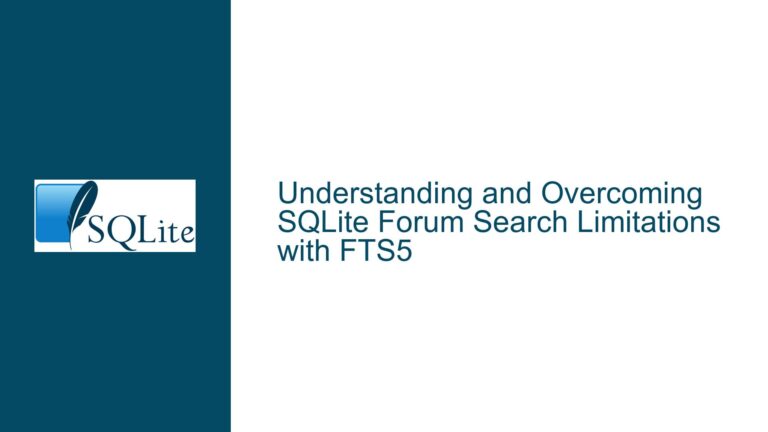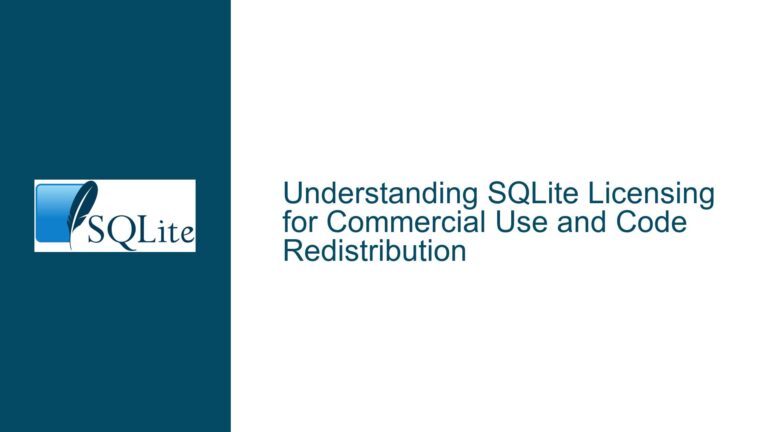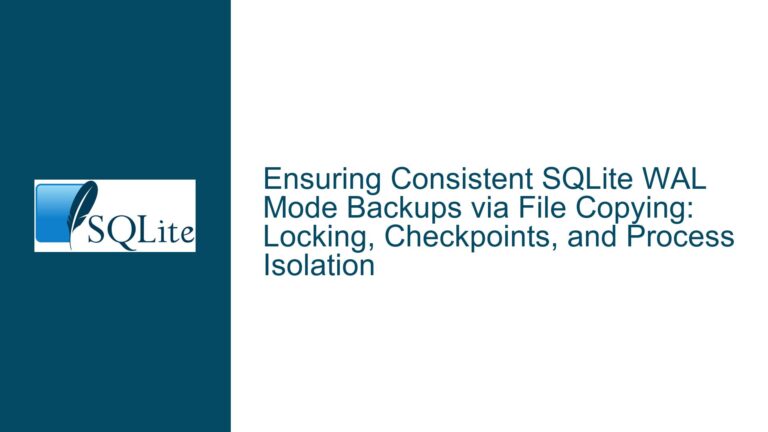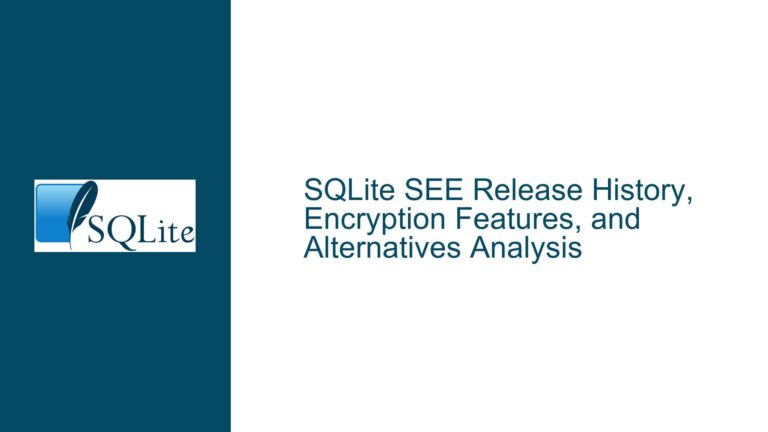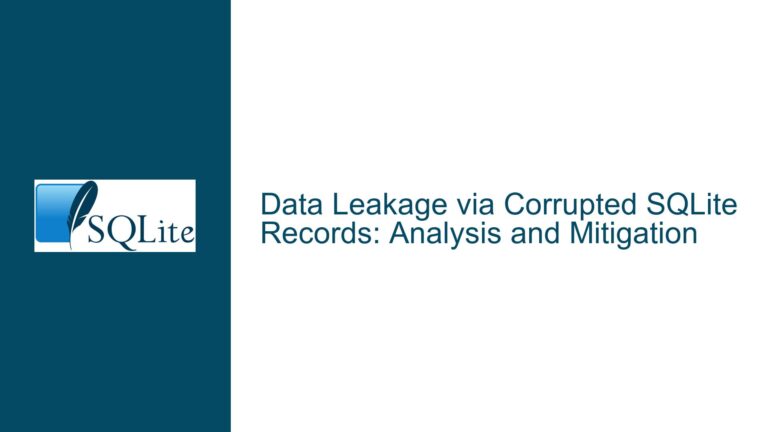SQLite Forum Emails Marked as SPAM Due to Dynamic Sender Addresses and Missing Authentication Headers
Dynamic Sender Addresses and Email Authentication in SQLite Forum Emails The SQLite Forum email system is designed to protect user privacy by generating unique sender addresses for each participant. These addresses follow the format [email protected], where XXXXXXXXXXXXX is a unique hexadecimal string. While this approach ensures privacy, it introduces challenges for email clients like Outlook.com,…
